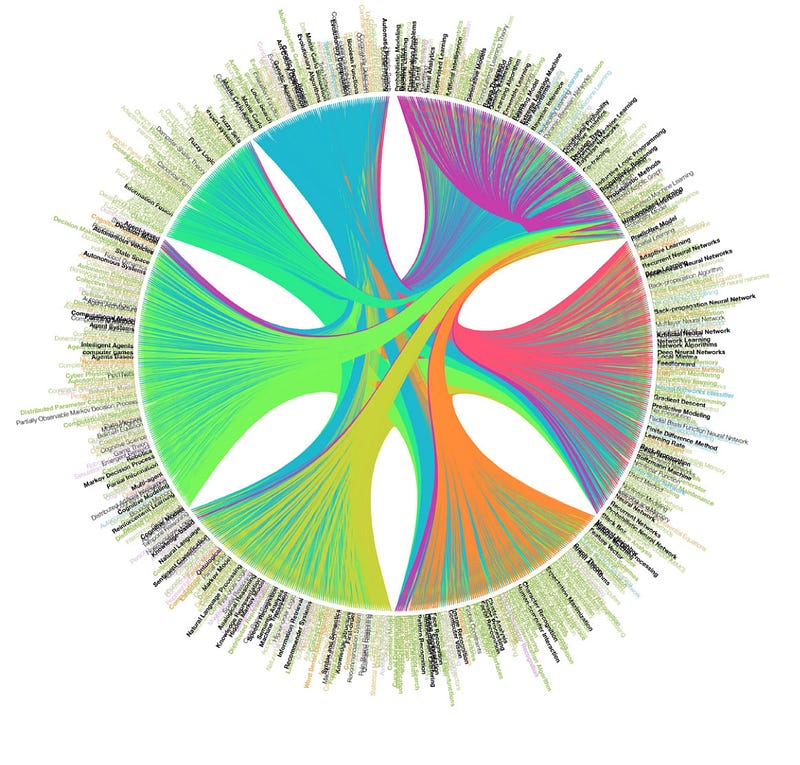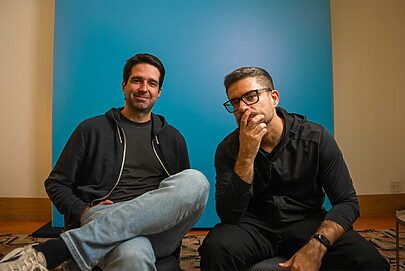Report: Global AI. Investimentos em pesquisa só crescem.
Pesquisas tecnológicas aplicadas a busca de novas soluções em Inteligência Artificial crescem 12% ao ano nos últimos cinco anos. Veja em que áreas isso está acontecendo.
Report: Global AI
How far has Artificial Intelligence research developed in the past two decades? Global information analytics company Elsevier shares its findings.
The report’s data shows how China is set to become the global leader in AI research, having already overtaken the U.S. in 2004 and fast closing in on Europe’s lead in that arena. At this rate, the report predicts that the country will become the biggest source of AI research globally within four years.
Key findings from the report include:
- Europe is suffering from AI Brain Drain: Over the 20 year period, Europe has been losing academic talent in this area, mostly to the corporate sector in the United States.
- Globally, research in AI has grown by 12.9% annually over the last 5 years
- There have been several key milestones over 20 years which have led to spikes and growth in AI research
- The ethics of AI is a research blind spot. Despite the increasing societal relevance of AI and widespread media attention on ethical implications, research remains limited.
The report shows that, globally, AI research has accelerated, growing by more than 12 percent annually in the past five years (2013–2017), compared to less than 5 percent in the previous 5 years (2008–2012). By contrast, research output overall, globally across all subject areas, has grown by 0.8 percent annually over the past five years (2013–2017).
Enrico Motta, Professor of Knowledge Technologies at the Open University in the UK, was one of the many experts who contributed to the report. He believes it is the most comprehensive characterization of AI outputs across different sectors delivered so far: “This report applies extensive text mining and semantic analytics across literature from different sectors to uncover how to more comprehensively define the AI field — essentially using AI to map AI,” he adds.
Reviewing 600 documents and over 700 field-specific key words across four sectors — research, education, technology, and media — the semantic analysis reveals that the field of AI focuses on seven distinct research areas:
- Search and Optimization,
- Fuzzy Systems,
- Natural Language Processing and Knowledge Representation,
- Computer Vision,
- Machine Learning and Probabilistic Reasoning,
- Planning and Decision Making, and
- Neural Networks.
Of these areas, research in Machine Learning and Probabilistic Reasoning, Neural Networks, and Computer Vision show the largest volume of research output and growth.


Regional findings highlighted in the report:
- In terms of research areas within the field of AI, Europe is the largest and most diverse region with high levels of international collaboration
- After China and the US, India became the third largest country in terms of AI research output, followed by Germany and Japan.
- Iran is ninth in AI publication output, on par with France and Canada.
- International mobility and collaboration patterns suggest that China operates in relative isolation from the wider research community.
“With this comprehensive study of research performance in AI we aim to provide insights into the field’s dynamics, trends and parameters, says Dan Olley, Chief Technology Officer at Elsevier. “The report is not a conclusion, but the start of a discussion on how we best enter the era of AI and increasingly symbiotic technology,” he concludes.
Data used in the report comes from Elsevier’s Scopus, Fingerprint Engine, PlumX, ScienceDirect, and SciVal, RELX’s TotalPatent, and further draws on public sources, including dblp, arXiv, Stanford AI Index, kamishima.net, and Kaggle, as well as datasets provided by the Institute of Automation, Chinese Academy of Science.
Alice Bonasio is a VR and Digital Transformation Consultant and Tech Trends’ Editor in Chief. She also regularly writes for Fast Company, Ars Technica, Quartz, Wired and others. Connect with her on LinkedIn and follow @alicebonasio on Twitter.
Originally published at Tech Trends.








